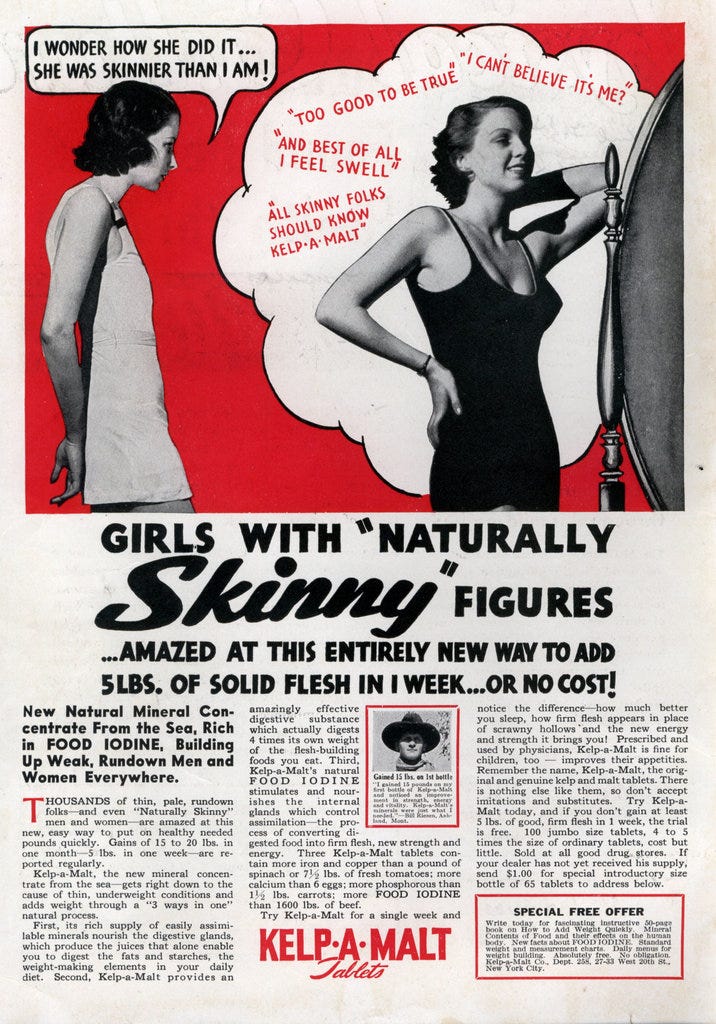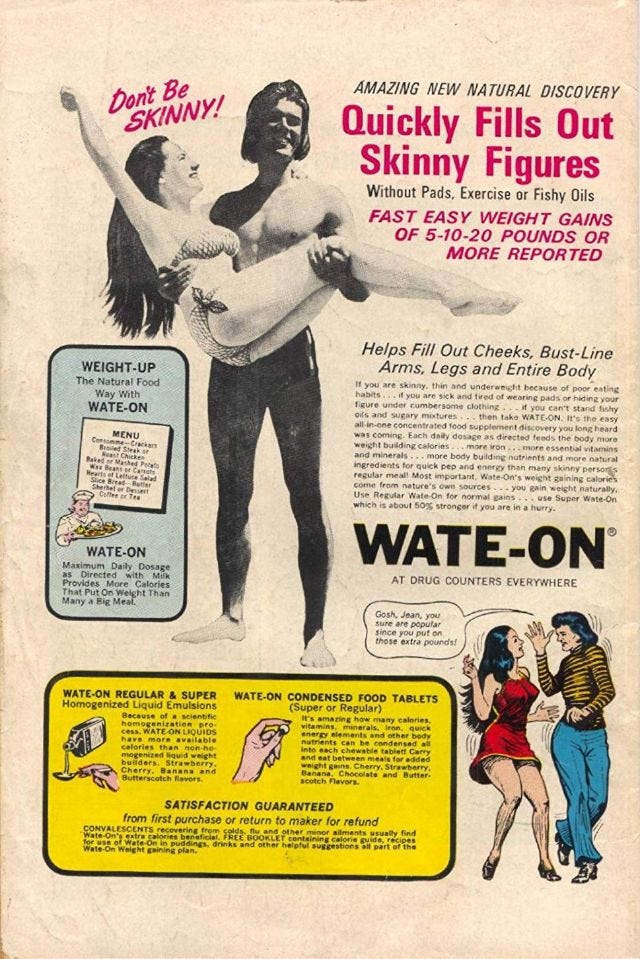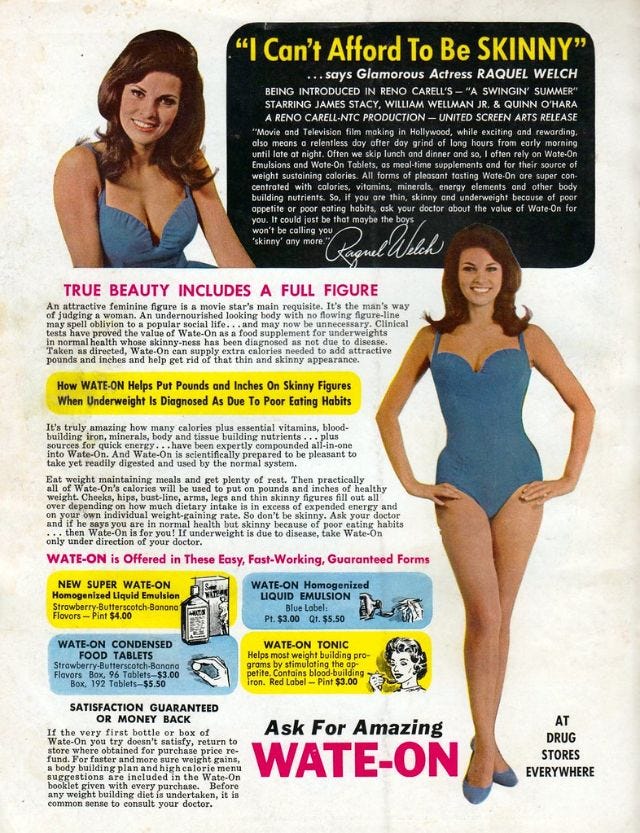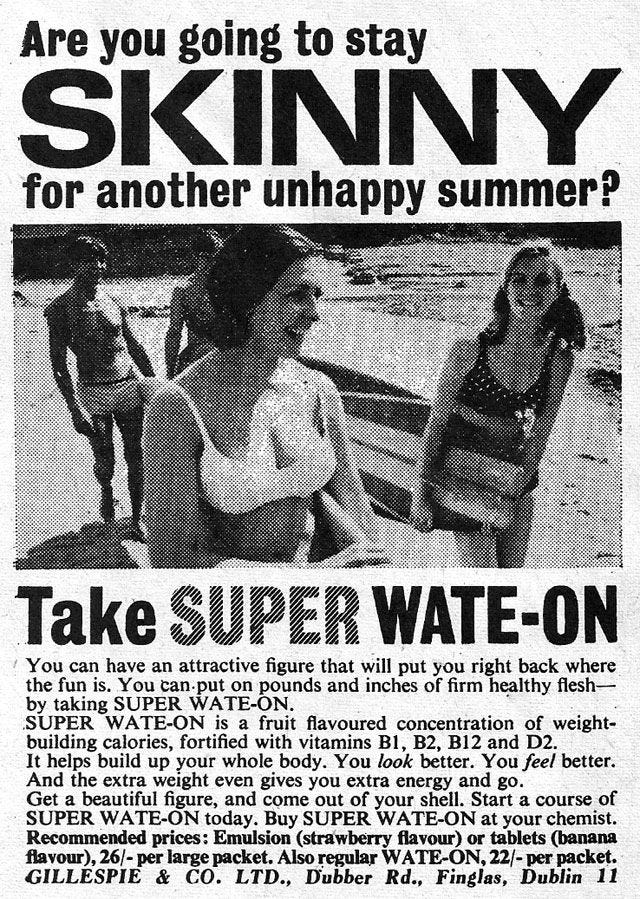Barbie, the iconic fashion doll, introduced generations of young girls to a lifetime of pursuing an unrealistic and exaggerated body shape. But Barbie wasn’t the only product that sold the idealized female body.
Many dietary supplements sold the “glamorous curves” of “popular” girls. Wate-On was marketed to women who were "thin, flat, skinny and underweight."
"Gosh, Jean, you sure are popular since you put on these extra pounds."
Many ads featured testimonials from B-list celebrities who praised Wate-On for helping them achieve a fuller figure that would make them more attractive and popular with men.
These products reflected the changing beauty ideals of the 20th century.
In the early 1900s, women were expected to have a curvy and voluptuous figure. It was seen as a sign of health, fertility and wealth.
In the 1920s, the flapper style emerged, which favored a slim and boyish silhouette. Women who wanted to fit into the flapper fashion had to bind their breasts, wear loose-fitting clothes and cut their hair short. This trend was short-lived, though, as the Great Depression and World War II made people value comfort and practicality over style.
In the postwar era, the ideal body shape for women shifted back to a more feminine and hourglass figure, which was popularized by stars like Marilyn Monroe and Elizabeth Taylor.
This was also the time when Barbie was introduced, a doll that introduced low self esteem and unrealistic beauty standards to generations of young girls.
By the late 1960s the idealized female form took another turn - toward the thin and androgynous style of Twiggy. Rinse and repeat.
For more history of the idealized female form see:
Beyond Phrenology (1932)
The beauty micrometer, also known as the beauty calibrator, was a device designed in the early 1930s to help in the identification of the areas of a person's face which need to have their appearance reduced or enhanced by make-up. It was invented by the famed beautician Maksymilian Faktorowicz also known as
Battle Of The Bulges! (1941)
The 1941 reel shows six scantily-clad girls grinning and bearing it while their lumps and bumps were pounded by vicious contraptions called Hoops and Tombolas - toning machines from America.










No wonder most women are basket cases trying to figure out what’s healthy, what size is good, how to be more beautiful, how to be less fat or thin, what clothes will help one look better, etc., etc., etc., ad nauseam.
I discovered the secret to fast, easy weight gain in the '70s. Apparently I could've made a fortune if I'd been born a few decades earlier.